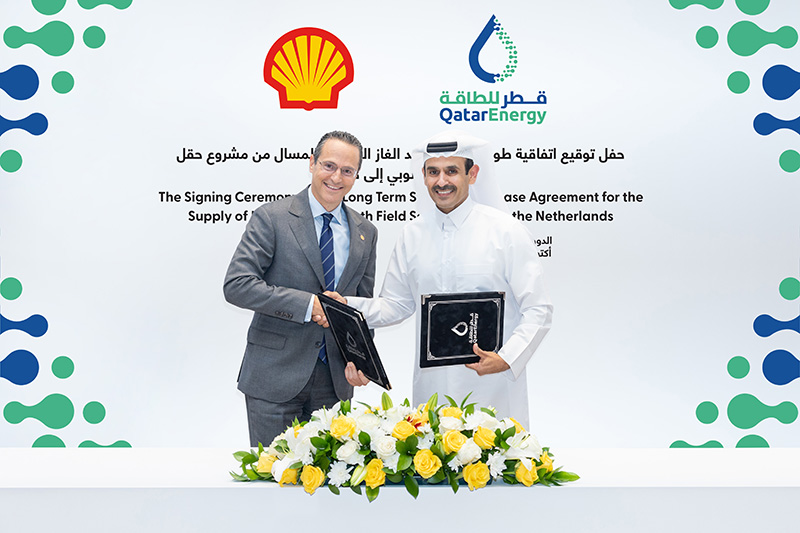
Shell agreed to buy liquefied natural gas from Qatar for 27 years to the Netherlands, marking the Gulf nation’s second major contract to supply fossil fuel to Europe beyond 2050.
Starting in 2026, QatarEnergy will deliver as much as 3.5 million tons of LNG a year to Rotterdam’s Gate import terminal for 27 years under two deals, the Middle Eastern company said in a statement on Wednesday.
That comes a week after the producer signed a similar deal with France’s TotalEnergies.
European oil majors are moving to sign some of the longest and biggest LNG supply deals as the region prepares for its second winter without the Russian pipeline gas it relied on for more than half a century. The contracts also come as the Netherlands seeks to meet a target to zero out emissions by 2050.
European firms had resisted signing decades-long deals preferred by Qatar in order to hit the region’s pollution reduction goals. The shift illustrates how the contracts have become more attractive after Russia’s invasion of Ukraine upended energy markets and prompted European nations to prioritize security of supply over green targets.
“These agreements reaffirm Qatar’s commitment to help meeting Europe’s energy demands and bolstering its energy security,” said Saad Sherida Al-Kaabi, Qatar’s energy minister. Qatar — which vies with the US and Australia as the world’s top LNG supplier — tends to link its contracts to oil, with little or no destination flexibility.
Qatar is rushing to find customers after investing tens of billions of dollars to increase output 64% by 2027. Shell last year bought a share in the project.
While other shareholders in the two-field expansion — including Exxon Mobil Corp. and Eni SpA — have yet to announce LNG purchase agreements, they may potentially ink similar deals as Qatar seeks customers for the extra volume.
Including the Shell contract, Qatar has so far committed about 18.8 million tons a year of that additional LNG capacity. Still, that just accounts for about 40% of the extra planned volume.
The so-called North Field East expansion is slated for 32 million tons per year, while the extension dubbed North Field South will bring another 16 million tons a year. For comparison, about 372 million tons of LNG was shipped in 2021.
Recommended for you
